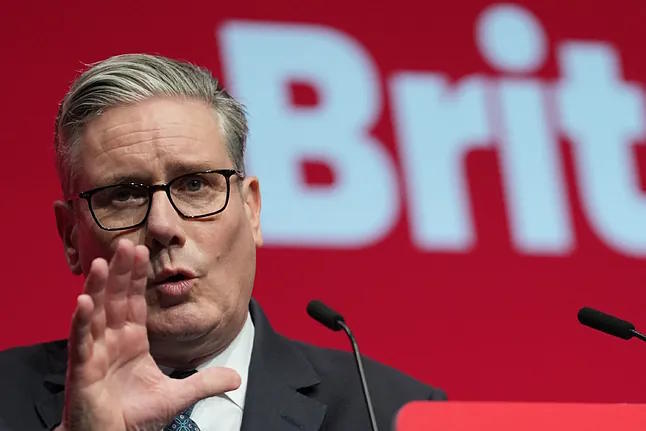Populism, both right-wing and left-wing, and not traditional conservatism, is the new enemy of social democracy. This was confirmed by British Prime Minister, Labour's Keir Starmer, in his speech at the party's Annual Conference. "We can see the smoke-sellers on the right and on the left," declared the Prime Minister, whose popularity has plummeted since winning the elections less than 15 months ago.
The Labour Party's message at this Conference has essentially been the same as they have been conveying for over a year. They are the party of solutions. Right-wing and left-wing populists are nothing but demagoguery. "None of them have the slightest interest in national revival because decay is good for their business," said Starmer. It was a blatant attack not only on Reform UK led by the ideological father of Brexit, Nigel Farage, but also on The Greens led by the self-proclaimed "ecopopulist" Zack Polanski and Your Party, a new formation created by former left-wing Labour members Jeremy Corbyn and Zahar Sultana.
The Labour Party's attacks on the left have been new. Equally new has been the elevation of Reform UK to the status of the main political rival, thus ignoring the venerable Conservative Party, whose Conference begins on Sunday. Starmer aims to concentrate the entire left around him to combat the common enemy leading the polls and who, according to some surveys, could even achieve an absolute majority in Parliament if elections were held today.
Starmer even referred to the leader of Reform UK by name when he asked attendees: "When was the last time you saw Nigel Farage say something positive about the future? He can't [do it]. He doesn't like the UK. He doesn't believe in the UK," said the Prime Minister, using a common term ("Britain") that excludes Northern Ireland. The Prime Minister even turned the tables on Farage's alleged liberalism and patriotism when he said that with his constant appeal to the invasion of immigrants, "he wants to turn this country, this proud country, into a nation of victims."
Despite the rhetoric, the Labour Party has shifted to the right at the Conference. The meeting made it clear - if there were any doubts - that Starmer has tied his political future (which is currently very bleak) to two ministers implementing highly controversial policies. One is the Finance Minister, Rachel Reeves, who on Monday reaffirmed that the UK will continue on the path of fiscal consolidation, involving spending cuts (upsetting the left) and tax increases on incomes (bothering the right). Reeves stated that "tough decisions" will have to be made, blaming the inherited situation from the Government - especially after the fiscal crisis caused by Conservative Prime Minister Liz Truss in 2021 - and "the international situation."
While Reeves' position was expected, the newly appointed Home Secretary, Shabana Mahmood, made a display of shifting towards the center (some may prefer to say "to the right") with a speech containing phrases that could have been uttered by Farage himself, summarized as "I will do whatever it takes to protect our borders."
Starmer's Labour Party continues with few changes, indicating that his popularity crisis will persist. The Prime Minister and his team's greatest comfort is that Andy Durham committed political suicide by stating that he would like the Government to be "less hooked on bond markets." In a country needing to put its finances in order to continue funding itself and recalling the national trauma of the Truss crisis, Durham's statements were his own coffin in his dreams of becoming the internal opposition to Starmer.
